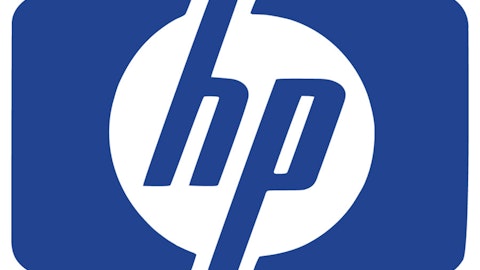An interesting point has been brought up by MFP Investors LLC’s Michael Price, one of the most respected value investors since the 1980’s. Is Goldman Sachs Group, Inc. (NYSE:GS) high-priced? Should you buy Goldman Sachs Group, Inc. (NYSE:GS) shares now?
“They’re the smartest guys in the room,” Price said. “When you’re looking at financials – banks, brokers, insurance companies – who’s going to be smarter than Goldman? And you don’t want to pay more than one times book and 10 times earnings. That to me is the center point.”
But that certainly differs from the popular opinion, after the FY12 annual report was released on Jan. 16. As my colleague Colin Lokey wrote:
“While the rest of the banking world tries to figure out how to turn a solid, no frills profit in the post-crisis world, the smartest guys in the room are back to doing what they do best: making money. Goldman Sachs’ earnings rose 190% year-over-year (no that’s not a typo) and 94% sequentially as the firm raked-in $9.2 billion in revenue and earned $5.60 per share, laughably ahead of estimates which were just $3.64.”
Company Analysis
Although total revenue has increased 190% QoQ since previous year, it might not seem so when you dig deeper. The market making segment, which reported an increase of 109% QoQ since the previous year, includes a gain of approximately $500 million on the sale of the firm’s hedge fund administration business. If we exclude that, the total revenue falls down to $2.2 billion in Q4 FY12, a QoQ increase of 70%. But more importantly, the annual revenue from market making segment falls down to $10.85 billion, a YoY increase of 16.8%. This is not at all impressive when the 3-yr and 5-yr revenue growth are (8.32%) and (13.27%), respectively.
Most non-interest revenue is directly proportional to the fees charged and the amount of assets under supervision. Total assets under management increased only 3% to $854 billion in December last year. Other client assets increased 66% to $111 billion. Total “assets under management” indicate the amount of assets you supervise and manage for primary third parties (or direct clients). If this is not increasing, then how will the revenue increase?
Though other expenses (which include litigation costs, regulatory proceedings, and “charitable contributions”) declined 11% on QoQ basis, the annual compensation and benefits expenses were recorded at $2.44 billion, a YoY increase of 18%.
In fact, legal costs were expected to reach $3.4 billion last year over the firm’s research and actions during 2008 credit crisis. Here’s an excerpt from an article in 2011:
“The bank has been named as a defendant in lawsuits related to its actions during the 2008 credit crisis, its research coverage and the collapse of the cable company Adelphia Communications. It is being sued by the city of Cleveland for causing a “public nuisance” with its backing of sub-prime loans.”
Last year, history repeated itself and Goldman Sachs faced mortgage debt lawsuit action on misleading securitization on loans from New Century Financial Corp. This is just what happened in 2010, when the company gave $550 million as compensation to settle fraud charges by the U.S. Securities and Exchange Commission (SEC) over a collateralized debt obligation it sold–Abacus 2007-AC1 CDO.
The company even faces a Facebook IPO lawsuit, as per this article:
“The plaintiffs, who are seeking to proceed on behalf of a class of Facebook investors, said the company and the banks didn’t disclose lower revenue estimates before the share sale. The members of the proposed class have lost more than $2.5 billion since the initial public offering last week, according to a complaint filed today in Manhattan federal court.”




